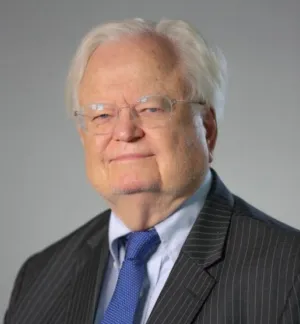The Bush administration's announcement that it will join the EU-3 negotiations with Iran -- if Tehran suspends, verifiably, its enrichment and reprocessing activities -- will be seen as good news by many. With this new initiative, the American-led attempt to stop diplomatically Iran's nuclear weapons program will likely last for at least several more months. Perhaps Iran will eventually accede, either because of the threat or imposition of sanctions against it, or in the face of the united will of the international community.
We may hope the outcome is peaceful. But how probable is it? Vegas might give 3-1 odds against -- or longer. The Europeans have tried for two years to find a compromise with Tehran, without progress. Despite nearly unanimous condemnation by the international community, the regime appears determined to acquire nuclear weapons capability, and to replace the U.S. as the dominant power in the Persian Gulf area.
The essential problem here is not administration policy, the shape of the table, or who is sitting around it. Iran's nuclear policies are causing this crisis and Tehran has been left in no doubt about how to end it -- stop trying to create a nuclear arsenal. Nevertheless, if negotiations with Tehran fail, the case against using U.S. military force to set back Iran's nuclear weapons program is impressive.
Iran would retaliate strongly in Iraq, in Afghanistan and perhaps against the U.S. homeland. The effect in the Muslim world could be volcanic. Terror against America would increase. Islam could be further radicalized. Oil prices would skyrocket with damaging effects on the international economy, even if Iran did not interrupt its supply. The people of Iran would probably fall in behind the mullahs.
Global public opinion would further shift against the U.S. The Bush administration's resulting prolonged fixation on Iran could facilitate the rise of Chinese power and give North Korea more room to maneuver. Moreover, how accurate would U.S. intelligence and targeting information be? For what period would an air campaign have to last to be effective? If Iran subsequently began rebuilding its nuclear infrastructure, how long would it be before the U.S. might have to attack again?
For many, these arguments rule out military force. Former National Security Adviser Zbigniew Brzezinski has argued that, "if undertaken without the sanction of the U.N. Security Council either alone by the U.S. or in complicity with Israel, it would stamp the perpetrator(s) as an international outlaw(s)." Since it is difficult to imagine any circumstance in which the Security Council would endorse U.S. military action against Iran, this would seem to take the military option off the table for the likes of Mr. Brzezinski.
If diplomacy does not succeed, he suggests a policy of deterrence, which, he explains, "has worked in U.S.-Soviet relations, in U.S.-Chinese relations, and in Indo-Pak relations." But deterrence in the situations he mentions was focused on avoiding nuclear use. It did not prevent Pakistan from conducting more than a decade of cross-border terrorism in the course of which 40,000 innocent Indians were murdered. Would nuclear deterrence weaken Iran's ambition to become the hegemonic state in the Persian Gulf region? Would it end Iran's state support for international terrorist organizations? Would it lessen this Iranian regime's oft-repeated objective to eradicate Israel?
In fact, it would likely be the U.S. that would be deterred once Tehran acquired nuclear weapons capability and threatened U.S. national interests. Many argued a decade ago against military action against North Korea's nuclear facilities. Negotiate, they insisted. The PDRK presently produces probably several nuclear weapons a year. Who's sorry now? Henry Kissinger reminds us that bureaucrats and experts instinctively favor delay, equivocation, negotiation and the status quo, "because short of an unambiguous catastrophe the status quo has the advantage of familiarity and it is never possible to prove that another course would yield superior results."
The use of American military force against Iran's nuclear infrastructure would obviously carry great risk. But acquiescing in an Iranian nuclear weapons capability would be deeply dangerous for the U.S. and likeminded democracies for decades to come. It would be regarded by the entire world, friend and foe alike, as a strategic defeat for the U.S., and produce a major shift toward Iran in the balance of power in the Greater Middle East.
Iran would be emboldened to further endanger American vital national interests world-wide. Terrorist organizations everywhere would be given a major lift, some through direct support from Tehran. Israel's very existence would be called into question. And the nonproliferation regime could be dramatically, perhaps fatally, undermined. If Egypt, Saudi Arabia, Turkey and other Muslim states followed the Iranian nuclear example, for how long could a nuclear war in be avoided in this violent part of the world? John McCain sums it up: "In the end, there is only one thing worse than military action, and that is a nuclear-armed Iran."
Given the extraordinary stakes involved, ignoring the military option and hoping that we will somehow be rescued by sanctions, new negotiating mechanisms, or the Iranian mullahs is a serious mistake. We should instead follow Nehru's advice: "Risks and deadlocks when they occur at least have this advantage, that they force us to think." The distinguished French strategist Therese Delpech has been doing precisely that and warns, "The Iranian nuclear programme is progressing more rapidly than anticipated . . . and Tehran shows it has learned from Pyongyang that brinksmanship brings rewards." We may not have years to debate these historic policy choices. We should do so now before the gathering storm with Iran arrives with full force.
Mr. Blackwill, president of Barbour Griffith & RogersInternational (a Republican lobbying and consulting firm), was U.S.ambassador to Indiafrom 2001-2003, deputy national security adviser for strategic planning and presidential envoy to Iraqin 2003-2004.
Blackwill, Robert. “Jaw-Jaw Before War-War?.” The Wall Street Journal, June 1, 2006


